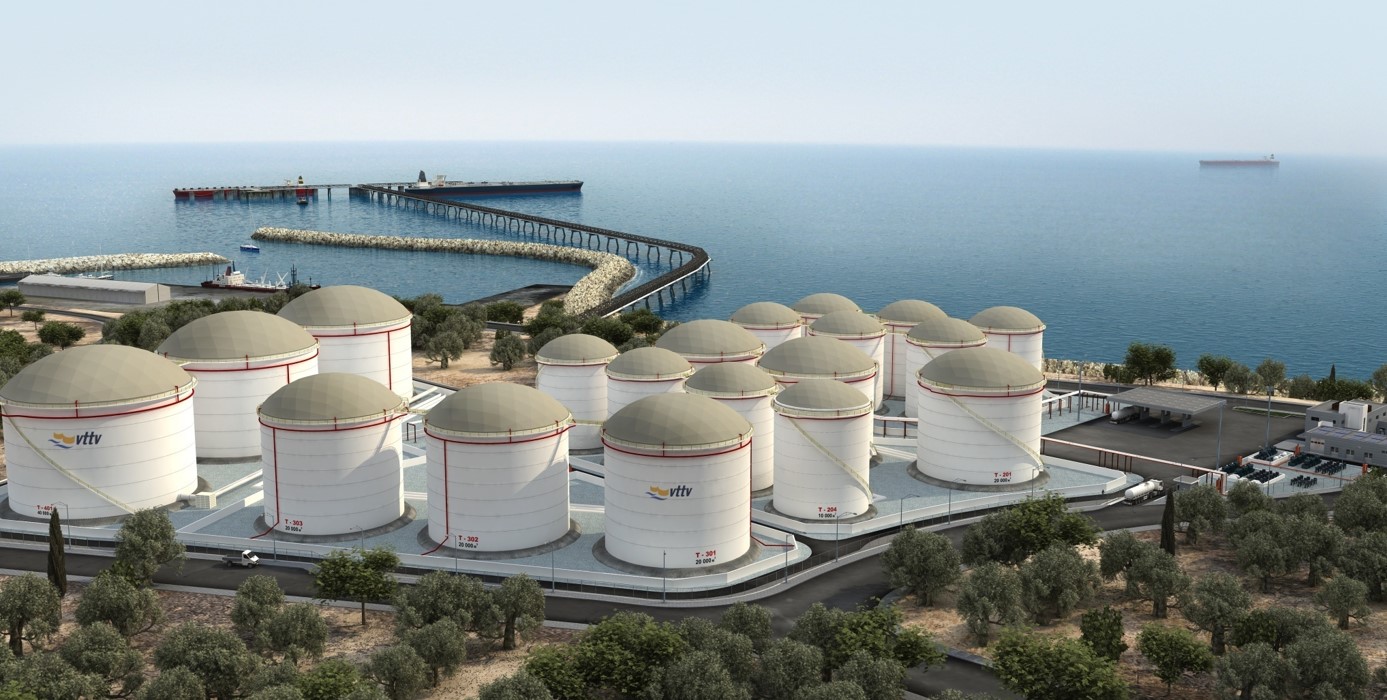Cyprus takes its first step into the natural gas era on Thursday when President Nicos Anastasiades lays the foundation stone of the island’s first LNG terminal at Vasiliko, Larnaca.
The €289 mln project is considered to be Cyprus’ largest energy venture and features an LNG floating storage and regasification unit (FSRU), a jetty, mooring facilities, a pipeline, and other onshore and offshore related infrastructure.
Construction is expected to be concluded in 2022.
“The project will pave the way for the electricity market, as without natural gas the market cannot open,” said Natural Gas Public Company (DEFA) chair Symeon Kassianides.
He said that studies conducted by DEFA and the Electricity Authority of Cyprus (EAC) have shown that natural gas will bring down electricity bills by 15-25%.
The project has received a €101 mln grant via the EU’s Connecting Europe Facility acquired by the Natural Gas Infrastructure Company (ETYFA), €43 mln in equity funding from the EAC which owns 30% of ETYFA, as well as a €150 mln loan from the European Investment Bank and an additional €80 mln from the European Reconstruction and Development Bank.
The contract for constructing the Vasiliko terminal was awarded to international consortium China Petroleum Pipeline Engineering, including Hudong-Zhonghua Shipbuilding (China), Metron SA (Greece) and Wilhelmsen Ship Management (Norway).
Michalis Komodromos, EAC chair and ETYFA vice-chair said that five electricity generation units will be ready to use natural gas while the sixth unit will become operational in 2023.
Cyprus made numerous failed efforts to introduce natural gas for electricity generation in the past due to high prices.
However, the project came into fruition when DEFA separated the process into two contracts one for the infrastructure and the other for LNG supply.
DEFA has launched a call for the expression of interest for the supply of liquefied natural gas (LNG), attracting interest from 25 international companies.
The supply contracts are expected to have a duration of between three to five years.
Turning to natural gas will help Cyprus safeguard energy supply, diversify the energy mix, and promote competition in the electricity market through the involvement of independent producers.
Cyprus had three unsuccessful attempts to import natural gas in the past due to its small size and energy needs.
The use of natural gas will reduce Cyprus’ carbon footprint by 25% to 30% in replacing oil-burning for electricity generation.
Based on conservative estimates, electricity generation cost savings will range between 15% to 25% from 2022-2025.









